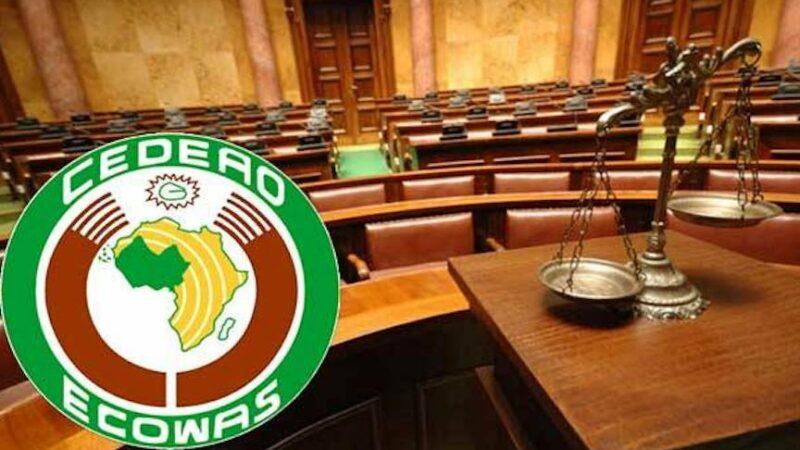By Adedayo Akinwale in Abuja
The Community Court of the Economic Community of West Africa States (ECOWAS), has expressed dismay over the proposed reduction of the number of Judges from seven to five.Â
It said the institutional reforms announced in Monrovia, during the recent statutory meetings held in June 2017, did not augur well for the development of community justice in the sub regional space.
The President of the Court, Justice Jerome Traore revealed this in Abuja at the opening ceremony of the 9th ECOWAS Court Judicial retreat, with the theme; ‘The ECOWAS Court of Justice: Prospects for Growth’.
He recalled that the Court, like other institutions based in Abuja, was faced with the closure of the Abuja airport for a long period of time, which disrupted the scheduling of hearings and negatively impacted its functioning.
The president also noted that the compulsory absence of Justice Micah Wilkins Wright weighed heavily, especially concerning the treatment of English cases of which his contribution had always been remarkable.Â
Traore stated: “In addition, there are prospects, which are none the less disturbing. Indeed, at a time when more and more litigants are coming before the Community Court of Justice, ECOWAS, it becomes more necessary than ever to strengthen our Court and surround it with all the guarantees of independence and efficiency.Â
“Against all odds, it is a paradox that this was the time chosen to proceed with a reduction in the number of judges from seven currently, to only five, if the envisaged reforms were implemented…does not augur well for the development of community justice in our sub regional space,” he added.
While fielding questions from journalists, the president stressed that the enforcement of judgement was still one of the challenges the court would continue to address.
He said enforcement was one of the challenges the court was yet to address because it was expecting all the member states to appoint the authorities in charge of enforcing the decision of the court, stressing that only four member states;‎ Mali, Nigeria, Burkina Faso and Guinea had appointed the national authorities to enforce the designs of the court.
‎Similarly, the Chief Registrar, ECOWAS Court, Mr. Tony Anne-Maidoh, said it had been observed that most of the recommendations of the past judicial retreats, however laudable, were hardly implemented‎, adding that if the trend was not checked, it could defeat the essence of the judicial retreats.Â
Anne-Maidoh stressed the need for e-filing and the automation of court processes and procedures, considering the stress involved in coming to Abuja to file court cases.
“There is an ongoing reform in ECOWAS as a whole. Presently the reform of the ECOWAS commission is virtually concluded but we look forward to that of the court and other institutions.Â
“We are reliably informed that there is a proposal to reduce the number of the judges of the court from seven to five. We are still waiting for the proposal to be communicated to the court officially, but we intend to respond. We feel that it will not augur well for the members of the court to be tenured from seven to five.
“Presently, we are not comfortable with the length of tenure of the members in the court. Initially, it was five years renewable; some years ago it was reduced from five years non-renewable to four yet as non-renewable and that is not well. All international tribunal there is no one that has that kind of tenure. It is not in the interest of the community, it is not in the interest of the court.
“The new proposal‎ to reduce the number of judges is very devastating at a time that people are saying we should have an appellate chamber within the court, we are thinking of reducing the number of the judges not reducing,” the registrar said.


